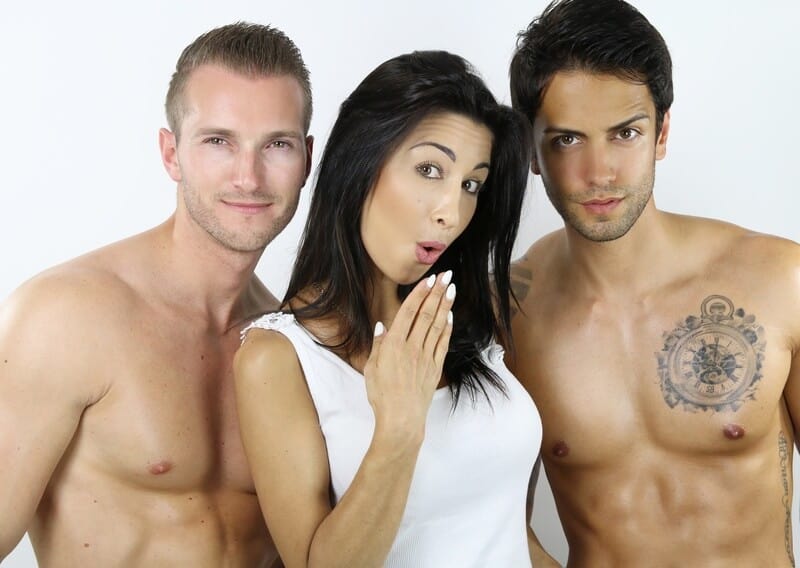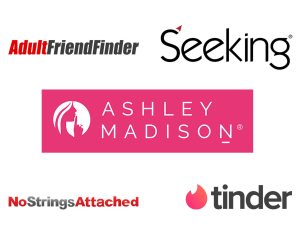
As a concept, who wouldn’t think being in an open relationship sounds like a blast? You get the security and steady companionship you love about traditional relationships without having to sacrifice your sexual freedom in the process. In many ways, it sounds like the ultimate way to have your cake and eat it too. However, just as strict monogamy isn’t right for everyone, neither are open relationships.
The fact remains that we’re still living in a society that places a very high value on monogamy and traditional connections. The idea of entering into an open relationship can feel a little bit strange for that reason. There’s also still quite a lot of misinformation floating around out there, making it even more difficult to determine whether or not an open relationship is the right choice for you. The following are just a few of the most common and most persistent myths. How many of these do you believe?
1. “Being in an open relationship basically amounts to cheating with permission.”
In a world that still largely believes monogamous relationships are the only romantic standard we should be aspiring to, it’s hard to let go of the idea that anything else amounts to some form of cheating. However, it’s important to realize that it’s not cheating if your partner is not only aware of what’s going on, but totally okay with it.
In an open relationship, you aren’t telling your partner they’re getting one thing, but giving them another. You’re certainly not forming secretive, illicit relationships with other people behind their back. How much detail the two people in an open relationship may decide to share with one another about other encounters is ultimately up to them, but no one is cheating. People in open relationships simply choose to acknowledge that no one can be someone’s “everything” and welcome the opportunity to redefine established boundaries to their own liking.
2. “Only people that are afraid of commitment prefer open relationships.”
Again, in a world where monogamy is king, people often have a hard time wrapping their head around any mindset that differs from that. They wind up assuming that anyone who’d choose an open relationship must be emotionally immature or have something wrong with them when that’s the furthest thing from the truth.
Entering into an open relationship doesn’t mean you’re emotionally inadequate or afraid of commitment. Choosing to open up an existing relationship doesn’t necessarily mean you’re not happy with your partner either. Many people in open relationships love commitment and choose to form committed attachments to more than one person at a time. Others can stay tremendously committed to their main partner while exploring other less monumental connections on the side. There’s no one right way to approach open relationships save for the way that’s right for you and your partner(s).
3. “Open relationships aren’t valid long-term choices.”
Another thing many people assume about open relationships is that they’re not sustainable on a permanent basis. At best, they’re seen as fun ways to get your needs for sex and companionship met with the assumption that you’ll eventually trade the open life in for monogamy and marriage like everyone else at some point down the line. After all, you can’t just go on seeing whoever you want forever, right?
Actually, you can do whatever you want and plenty of people stick with the open lifestyle on a permanent basis. Many happy open relationships eventually turn into happy open marriages. The fact that one or both parties have other relationships and connections on the side that fade in and out over time doesn’t mean they aren’t very much in love with (and committed to) one another. Sure, some people do eventually decide to become exclusive, but it’s just plain not true that everyone does.
4. “It’s not possible to fall in love with more than one person.”
Speaking of society, it’s also holding onto some ideas about love that don’t make much sense, especially when it comes to relationships. Believing that you can only be in love with one person at a time doesn’t even make sense when you think about it. After all, we don’t just love our partners. We also love our parents, our children, our pets, and our really good friends but no one thinks those connections somehow lessen the one we have with our partners.
While there’s certainly nothing wrong with choosing to be exclusive with someone, it’s important to realize that love isn’t a finite resource. Loving more than one person or enjoying the occasional casual encounter outside of your primary relationship doesn’t mean you love your partner less or that the love you share is somehow “less than”. In fact, it quite likely means you’re a person with a lot of love to give period – hardly something to be ashamed of.
5. “Opening up a relationship always leads to a break-up.”
Many people see a distinct difference between starting a relationship that’s open from the beginning and choosing to open up an existing relationship that was once monogamous. It’s commonly assumed that changing a previously exclusive relationship in this way is a sign something’s wrong with it – that one or both people aren’t happy — and that’s just not true. It’s not necessarily true that opening up your relationship inevitably leads to a break-up either.
Sure, some couples do break up after deciding to try the whole non-monogamous thing. However, those couples probably weren’t communicating properly and being respectful of one another to begin with. People in recently opened relationships break up because they don’t communicate properly or because one person wasn’t truly on board with the idea from the get-go. There’s actually no evidence to suggest that choosing to be non-monogamous in and of itself causes break-ups or drives people apart. In fact, when it’s really working for both parties, it sometimes brings couples closer together.
6. “Queer people are more likely to want an open relationship than straight people.”
This line of thinking isn’t just incorrect. It’s also directly dependent on the homophobic belief that bisexual, queer, or gender fluid people are somehow more inherently promiscuous than cisgendered heterosexual people. Plenty of queer people far prefer monogamy to the alternatives and lots of heterosexuals love the freedom and possibilities open relationships bring to the table.
That said, open relationships and/or an interest in casual sex are not just options that appeal to queer people by any means. A queer person in a monogamous relationship isn’t necessarily secretly yearning to be in an open one instead either. Yes, if your partner is bi, they might have an interest in dating someone that isn’t the same gender as you if you do open things up. However, their sexuality doesn’t make them more prone to wanting an open relationship than anyone else. We’re talking about two different things here.
7. “People in open relationships can hook up with whoever they want.”
Lots of people assume that being in an open relationship means having zero restrictions on who you hook up with for sex and getting to do absolutely anything you want. That isn’t necessarily the case. Healthy open relationships are built on trust and mutual respect. For that reason, it’s not unusual for primary partners to be given “veto power” over any potential connections (i.e. “not that guy from your office”, “not your ex”, or “not my sister”). There are most certainly ground rules both parties are expected to follow and boundaries that should be respected.
For instance, one couple might decide emotional connections are completely off-limits, while another might decide meaningless hook-ups are. Some might be all about sleeping with complete strangers while others might insist things be limited only to people they know and trust. Being in an open relationship isn’t about enjoying a complete free-for-all or deciding the world is your orgy. It’s about expanding your horizons and exploring new possibilities as far as what it does and doesn’t mean to be in a relationship in the first place.
8. “Sex is the only reason someone would be interested in an open relationship.”
When you don’t really understand why someone would prefer an open relationship to a more traditional option, it’s probably tempting to assume the worst of them. You assume that person just can’t keep it in their pants and wants to hook up with as many people as possible without also having to suck it up and be single. In other words, opponents of open relationships tend to think it’s all about sex, sex, and more sex.
While some people do limit their supplementary connections to mere sexual encounters, that’s hardly the only way to approach an open relationship. For many people, their supplementary relationships do involve emotional connection to one degree or another. As touched on above, they may well involve trust, quality time, and even love. The world’s a big place filled with near endless possibilities. It’s up to you and your current partner to decide what the limits should be, not society. Explore the possibilities together today!











